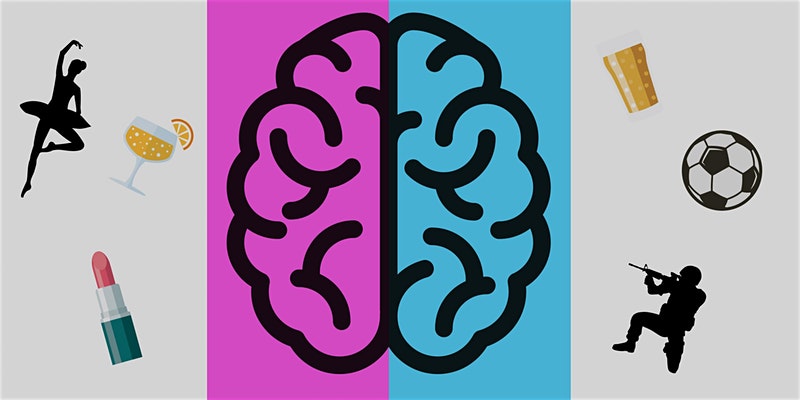Winners of the BNA Credibility Prizes 2024
17th April 2024
External Event - 6th May 2020

Wed, May 6, 2020
7:00 PM – 8:30 PM BST
Royal Geographical Society
1 Kensington Gore
Kensington
London, SW7 2AR
£16.08 – £31.90
Myths and stereotypes about the sexes abound in our society. Girls love Barbie and boys love Lego. Women are more sensitive and cooperative, whereas men are more aggressive and sexual. However much these apparent differences are borne out by the behaviour of men and women, many experts argue that they are driven by cultural forces, not biology – and recent research appears to back this argument up. Neuroimaging of human brains shows that while some features are more common in the brains of women and others are more common in the brains of men, the vast majority of people have a highly individual mix of both. In other words, we all have an intersex brain, neither male nor female. And far from being rooted in biology, it is argued, behavioural differences between the sexes are due to the fact that we live in a highly gendered world where society’s expectations of what boys and girls should be like begin from the moment they are born.
That’s the argument made by those who claim that there is no such thing as the female brain. But not everyone agrees that the science behind it is correct. In fact, some neuroscientists say that human brain scanning allows us to predict whether a person is male or female with 90% accuracy. And while they wouldn’t want to deny the importance of culture in explaining behavioural differences between the sexes, these experts argue that this isn’t the whole story. For example, you only have to look at most other primates to see that physical aggression is a predominantly male attribute, explained by the biological pressure to find a mate. Human males are far more violent than females across all cultures, and new research links this trait to specific mechanisms in the brain. Other traits such as risk-taking, behaviour while playing, and responses to social defeat also differ between the sexes in the animal world as they do among men and women, which suggests that these differences are fundamentally rooted in our biology.
So are women’s and men’s brains fundamentally the same? Or are they innately different in ways that can help us better understand ourselves? Join the debate on May 6th 2020, hear the arguments and decide for yourself.

Professor of psychology and neuroscience at Tel-Aviv University
Professor of psychology and neuroscience and author of Gender Mosaic: Beyond the Myth of the Male and Female Brain. Professor Joel is chair of the psychology graduate committee at the School of Psychological Sciences and a member of the Sagol School of Neuroscience at Tel-Aviv University. She focuses on questions about brain, sex and gender, and uses a wide range of methods to analyse diverse datasets, from large collections of brain scans to information obtained with self-report questionnaires.

Professor of cognitive neuroimaging at the Aston Brain Centre, Aston University, Birmingham
Professor of cognitive neuroimaging at the Aston Brain Centre, Aston University, Birmingham. She is also an advocate for initiatives to help overcome the under-representation of women in STEM subjects and belongs to WISE and ScienceGrrl, and is a member of the Speakers4Schools programme. Her first book for the general reader is The Gendered Brain: The New Neuroscience that Shatters the Myth of the Female Brain.

Associate Professor in Genetics and Neuroscience at Trinity College Dublin
Associate Professor in Genetics and Neuroscience at Trinity College Dublin. He studies the genetics of brain wiring and its relevance to variation in human faculties. He writes the Wiring the Brain blog (www.wiringthebrain.com). He is the author of INNATE – How the Wiring of our Brains Shapes Who We Are.

Lecturer in the Social Genetic and Developmental Psychiatry Centre, KCL
Lecturer in the Social, Genetic and Developmental Psychiatry Centre at King’s College London. He is interested in how and why people’s intellectual abilities develop and change across their lives. His forthcoming book, Science Fictions, is about how fraud, bias, error, and hype undermine scientific research.

Medical doctor and broadcaster
Medical doctor and broadcaster who has presented numerous shows for the BBC and Channel 4, often alongside his twin brother Chris. He’s presented documentaries including Sugar V Fat, How to Lose Weight Well and How to Find Love Online, where he attempted to find the perfect match through exploring the science of online dating.
Speakers are subject to change.